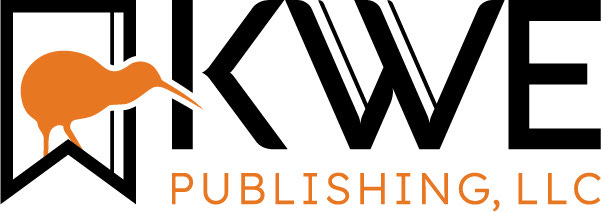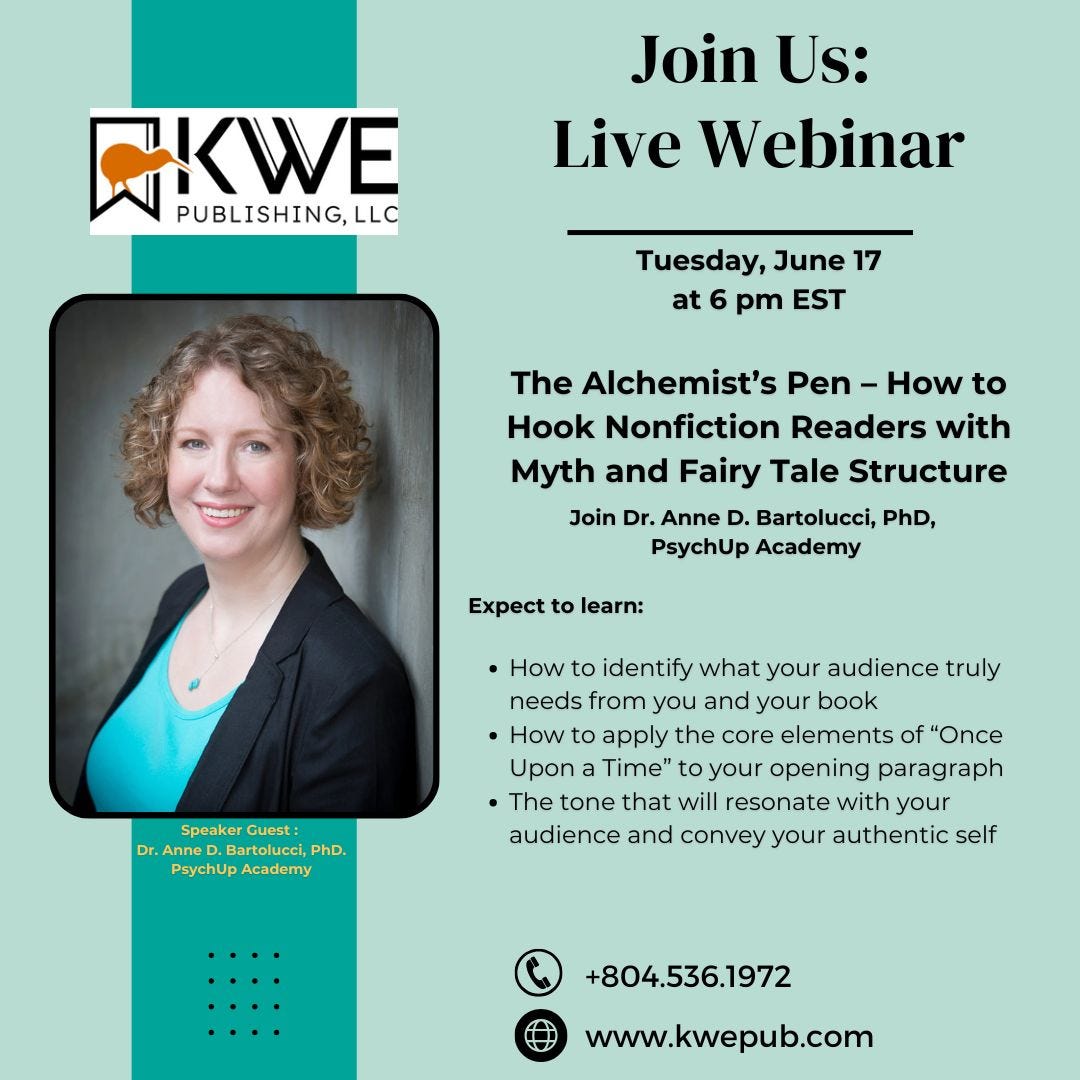How To Outwit—and Outwrite—AI
You might feel a little hopeless, but there is hope.

Recently, I was stunned to learn that the Chicago Sun-Times recommended a reading list filled with nonexistent, AI-generated books. Readers across the internet expressed their annoyance that a newspaper would use AI to generate recommendations without even checking to see if the books themselves were real. (Chicago Sun-Times retracted these recommendations soon after the bogus list was published.) When I heard this story, I just sat there with my jaw hanging down for about sixty seconds!
Understandably, this brought up a lot of frustration and concern from readers and people in the publishing world. So, today, we wanted to talk about those concerns and hopefully give you some hope. While AI likely isn't going anywhere anytime soon, and it does admittedly make many of our jobs more challenging as writers, publishers, editors, marketers, etc., we have faith that human-generated books aren't going anywhere, either.
What are authors' fears around AI?
The strange occurrence of the Chicago Sun-Times suggesting its readers check out a list of books generated by AI epitomizes readers' and writers' fear around AI taking up space that real authors with real books deserve to occupy. Authors worry that readers will buy AI-generated books instead of theirs or that readers will become accustomed to the fast-paced rate at which AI-generated content is churned out (whereas it takes people longer to write complex stories; a lot of work goes into creating a book!). Basically, authors are concerned that AI-generated content will devalue and diminish their work.
As
from recently shared in his article, "Substack Summer, AI Slop, and the State of Selling Books," authors aren't the only ones worried about AI; book publicists, who use their skills to market books on other platforms (think in newspapers, podcasts, TV shows, radio, social media, etc.) are also increasingly frustrated. The market is already incredibly saturated, and if publicists have to compete with AI-generated books (or, in the case of the Chicago Sun-Times, compete with books that don't even exist), it becomes that much harder to get publicity for a book. This is especially true because there are so few people who professionally review books, which Lincoln also notes in his article.Our team has also seen the impact of AI. We've seen more AI-generated books pop up on retail sites like Amazon. Some of these books sell pretty well, which is annoying to see when we know how much time, energy, effort, and often money go into publishing a book. It becomes fairly easy to spot this content when you’ve seen enough of it, and we’ve certainly seen our fair share.
The thing is, it's not authors' fault that these AI-generated books exist. Likewise, the majority of publishers, publicists, literary agents, editors, marketers, and artists don't want AI content to fill up ad space in newspapers, clutter social media feeds, and crowd bookshelves. People’s fears aren’t unfounded as we see an increase in this content.
So, what should writers and authors do to compete against AI?
We should note that it's not solely up to authors to "fix" the problem with AI; it's up to consumers, too, to spend money on the products (books) that they think are worth investing in.
There's no one-size-fits-all answer here, but the truth is that, while AI can create a convincing facade of humanity at times, AI is programmed to "read" that which already exists, compile it, and then "create" something derivative. It does all of this, of course, without crediting the authors whose stories it references or whose styles it emulates.
You could argue that there's nothing new under the sun, of course, that every story has been told, and all works are inspired by others. Still, the way you interpret something, are inspired by something, feel something, cannot be replicated.
You can outsmart AI—and outwrite it. How?
First and foremost, let your creativity run wild. Write messy, chaotic first drafts. Write about things that overjoy you and things that fill you with the heaviness of sadness or rage. To express yourself authentically is to be human, and that is something no AI can replicate. The way you view the world is unique to you, whereas AI is an amalgamation of existing content.
Define your niche, know what readers are looking for, and hone your craft. Know when to follow time-tested structures, and take advantage of those structures to subvert readers' expectations in new and exciting ways. The more you know about your niche as a writer, the more you can experiment with ways to create a compelling story.
While it's valuable to get to know your niche, it's also smart to write from new perspectives or in new genres. It might feel strange initially to write something completely different than what you're used to, but overall, this can change the way you approach a story. If you don't like what you write, no worries; you don't have to share it with anyone. However, you never know what you might end up with when you try something new.
Learn more about the structures of storytelling. There are endless ways to tell a good story. Even if you're not a planner, seeing the way others outline, brainstorm, and structure their stories can be interesting. (If you want to see some unique outline templates, you can check out our post here.)
Allow yourself to be inspired by others' work. This might sound contradictory since we talked about AI being derivative, but there's certainly a difference between seeing a phrase or technique and making it your own and a program recycling others' work in a way that's fairly easy to identify, especially if you know what to look for.
Similarly, think about the stories you love the most. What makes these stories so memorable? Go back and read the books you've loved throughout your life. The stories you loved, from a childhood fairytale to a novel you read a few years ago, are still there. Seeing how your interests have evolved and what makes a good story will help you understand how to be a better writer yourself.
Read! Besides writing, reading is the best way to become a better writer.
Can you still use AI without creating AI-generated content?
This is a gray area in that many people have strong opinions on this subject. Some people firmly feel that generative AI shouldn't be used in any capacity in writing. Other people feel like it can be a helpful way to view a story from a different angle or spark new ideas. (There are also those who don't care how a story is written; in our experience, though, most people in publishing oppose solely AI-generated content.)
If and how you use AI is your call. We think it can be a useful tool and can inspire creativity—but we don't recommend using it to write your book for you. You certainly don't have to use generative AI at all, though; that's the way authors have been writing for centuries!
There are so many other great resources available to you, too, that have nothing to do with generative AI. Consider asking other writers what resources they love or what tools they use to write.
Ultimately, though AI has and will continue to affect the publishing industry, storytelling has and will continue to make the world a better place and bring people together. Keep writing, reading, and seeking out stories that are filled with humanity.
We’re building a community dedicated to helping writers share their stories with the world. Want to join us? Subscribe for free to join our community of writers bringing their stories to life, or access our free ebooks, writing templates, and more when you become a paid subscriber!
If you are writing a book and want a hand, let us know! Our team—Kim, Emily, and Jean—would love to help you with creating your book. If you'd like to talk about your idea or want advice, we are here for you. Even if we don't work together, I'm happy to share what I know. Book a 30-minute complimentary consultation by clicking here:
https://www.kwepub.com/consultation
We look forward to hearing about your incredible book project.
Write on!
Kim Eley
KWE Publishing
“There is no doubt that creativity is the most important human resource of all. Without creativity, there would be no progress, and we would be forever repeating the same patterns.”
– Edward de Bono
Don’t Miss Our Free Upcoming Webinar with Dr. Anne Bartolucci!
Join us on June 17, 2025, at 6:00 p.m.–7:00 p.m. Eastern for an amazing webinar with Dr. Anne D. Bartolucci!
Under the pen name of Cecilia Dominic, Anne has woven over twenty captivating tales that invite you to lose yourself in realms of wonder. The cornerstone books in each of her spellbinding series are gathered here for you to explore.
To uncover even more of Anne’s fiction, wander over to her enchanted library at www.ceciliadominic.com.
But her magic doesn’t stop with fiction. Anne’s non-fiction works offer insightful guidance, blending her expertise in psychology with practical tools for mastering your mind and nurturing your creativity.
Expect to learn:
How to identify what your audience truly needs from you and your book
How to apply the core elements of “Once Upon a Time” to your opening paragraph
The tone that will resonate with your audience and convey your authentic self
TIME SENSITIVE! Check Out Jane Friedman’s Upcoming Webinar!
Author and editor Jane Friedman is hosting a webinar on May 29th, 2025, titled “Will Your Nonfiction Book Sell? How to Evaluate the Strength of Your Project” with Writer’s Digest University.
If you want to publish a nonfiction book that lands you a literary agent or a contract from a sizable publisher (with a decent advance in the four or five figures), then current market conditions—and your position in that market—will affect your ability to secure a deal.
Writers new to the publishing industry sometimes find it shocking how little they are evaluated on the writing or the merits of their book idea, and how much they’re judged on market appeal—which includes their own personal potential in the market.
The good news: More nonfiction books are published and sold around the world than fiction. And typically, nonfiction is an easier market to excel in compared to fiction.
But you’ll need sharp clarity about your idea or story, why it should be expressed in book form, and how it is relevant and unique in today’s market. You’ll have much more success with your pitch (and book proposal), if you take time to understand the market and conduct appropriate research beforehand. Without research, it’s easy to miss the major dealbreakers that lead to rejection before an agent has even read the first page of your proposal or manuscript. And sometimes you’ll realize that writing and publishing a book isn’t your next best step.
Supplemental resource: While this class does not cover the nuts and bolts of how to write a book proposal, it will help you answer important questions that lead to a better and more focused proposal. A book proposal template will be provided as part of the class to use on your own.
Resources:
Here at KWE Publishing, we want to share a few of our favorite resources with our newsletter readers. Check back weekly to see what resources we recommend!
Since we shared
from ’s article, we also wanted to also highlight his publication as a whole. As a fiction writer and professor, Lincoln created Counter Craft as a place to talk about the specific craft of writing (along with other literary happenings). If you write fiction, want to learn more about the art of writing, or are interested in keeping up with all things literary, we recommend checking out Counter Craft!






